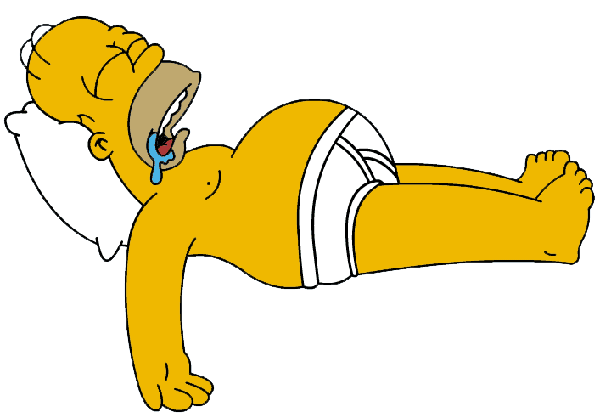It may be far and few between for some of us during this
time of year, but getting a good dose of beauty sleep can do more than turn you
into Brad Pitt’s lookalike. Several studies link sleep habits with long-term
health benefits and consequences. Adequate sleep is a key part of a healthy
lifestyle and can improve your heart, weight, mind and more.
Did you know that you will spend about one-third of your
life sleeping? But why exactly do we need sleep, how much sleep do we need and
what happens to our bodies while we are catching ZZZs?
Our bodies go through several stages of sleep, moving from
one stage or type of sleep to another in cycles that can last up to 90
minutes each.
·
Stage one- During this stage, you sleep lightly and drift in and out
of sleep and you are easily awakened. Your muscles begin to slow down and your
eyes move very slowly.
·
Stage two- In stage two, your muscles relax. Your brain waves slow
down, though occasionally you have bursts of brain activity.
·
Stages three and four- Deep sleep sets in. Your brain waves become large and
slow. Your breathing becomes rhythmic, and your muscles remain relaxed. At this
point your body begins releasing repairative hormones. Stages one through four
are referred to as non-rapid eye movement (NREM).
·
Rapid Eye Movement (REM)- During REM sleep your
muscles stop moving completely. Your breathing and heart rate become rapid and
irregular, your blood pressure is more variable, and your eyes move rapidly in
bursts of activity. Your brain waves show a pattern similar to wakefulness.
Scientists believe this indicates that your brain is using this time to sort
and organize your memories. Dreaming takes place during this stage. If you're
awakened during REM sleep, you may recall vivid dreams.
Sufficient sleep helps recharge our mental and physical
batteries but chronically losing sleep can lead to serious consequences. Research
from the Division of Sleep Medicine at Harvard Medical School linked deficient sleep
with serious medical conditions. Many of their studies have shown people who
get less than six hours of sleep per night are more likely to have a higher
body mass index (BMI), are prone to developing diabetes, and can lead to
depression or other mood disorders.
During sleep, our bodies
secrete hormones that help to control appetite, energy metabolism, and glucose
processing. Obtaining too little sleep upsets the balance of these and other
hormones. For example, poor sleep leads to an increase in the production of cortisol, often referred to as the "stress hormone."
Poor sleep is also associated with increases in the secretion of insulin
following a meal. Insulin is a hormone that regulates glucose processing and
promotes fat storage; higher levels of insulin are associated with weight gain,
a risk factor for diabetes. Insufficient sleep is also associated with lower
levels of leptin, a hormone that alerts the brain that it has enough food, as
well as higher levels of ghrelin, a chemical that stimulates appetite. As a result, poor
sleep may result in food cravings even after we have eaten an adequate number
of calories. We may also be more likely to eat foods such as sweets that
satisfy the craving for a quick energy boost. In addition, insufficient sleep
may leave us too tired to burn off these extra calories with exercise.
A sleepless night can cause even a saint to be irritable and moody the
next day. Chronic sleeplessness has been correlated with depression, anxiety
and mental distress. In one study from the Division of Sleep Medicine, subjects
who slept 5 hours or less a night showed declining levels of optimism and
sociability and greater feelings of stress, sadness, anger and mental
exhaustion.
Considering the many
potential adverse health effects of insufficient sleep, it is not surprising
that poor sleep is associated with lower life expectancy. It sounds
so easy in theory though, right? Get eight hours of sleep a night (by the way
the daily recommended amount is between 7 ½ and 9) and live healthily ever after. But with all of
those reality shows on and Starcraft games to be played each night, before you know
it it’s midnight and your alarm is set to go off in 5 hours. Here are some tips from the Mayo Clinic on how
to get better sleep and more of it:
1.
Stick to a sleep schedule- Go to bed and wake up
at the same time each day.
2.
Pay attention to what you eat and drink- don’t
go to bed too hungry or too full.
3.
Create a bedtime ritual- Do the same things each
night to tell your body it's time to wind down. This might include reading a
book, listening to soothing music, or practicing relaxation techniques.
4.
Get
comfortable- Create a room that is ideal for sleeping: some place cool, quiet
and dark.
5.
Include physical activity in your daily routine-
This should be a given…since you are participating the wellness challenge and
all…right?
6.
Manage stress- When you have too much on your
plate your sleep can suffer. To restore peace in your life, consider healthy
ways to manage stress.
Happy Sleeping!

No comments:
Post a Comment